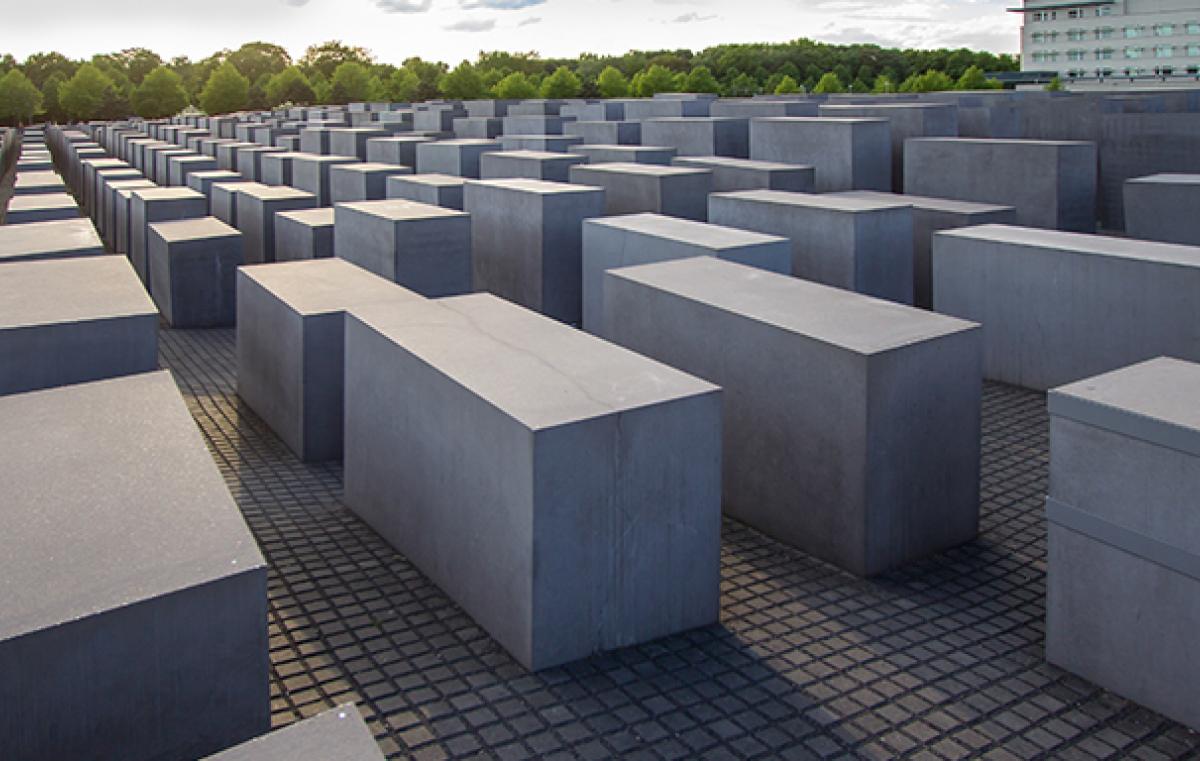International Seminar on Holocaust Education
The seminar, hosted by BIU’s Sal Van-Gelder Center, focused on the need to conduct inter-religious and intra-religious dialogue in the context of the discourse on the Holocaust and on racism in general

+The Van-Gelder Center for Holocaust Instruction & Research, headed by Prof. Zehavit Gross of the School of Education, hosted an international research seminar attended by senior researchers in the field of Holocaust education from leading universities in Israel, China, the United States, South Africa, Brazil, Australia, Germany, Austria, Italy, Czech Republic, Poland, Spain, Serbia and Macedonia. Muslim, Christian and Jewish scholars participated in this unique international Holocaust remembrance event.
The seminar was opened by Naeemah Keadan, a graduate student at the BIU School of Education, who read in Arabic the lyrics of the song, “A Shtikele Broit,” written by Prof. Zehavit Gross in memory of her father, a Holocaust survivor from Transnistria. The song has been translated into Arabic and 19 other languages. Keadan recounted how she taught the song to her class at the Al-Qasemi high school in Baqa al-Gharbiyye and how the students reacted. Following greetings and the marking of the 60th anniversary of the opening of the war crimes trial of Adolf Eichmann, which was headed by the Israeli Chief Prosecutor Gideon Hausner, his daughter, Attorney Tamar Hausner-Raveh read the powerful opening speech at the trial and noted its importance in shaping Holocaust remembrance in Israel and throughout the world.
The conference research sessions were opened by Prof. Yusuf Wahid of Stellenbosch University (South Africa). Prof. Wahid is a Muslim philosopher, who is recognized as one of the most important philosophers of education, and particularly of Islamic education. Prof. Wahid spoke about the importance of commemorating the Holocaust, which is considered a crime and a blatant violation of human rights, even from a universal perspective.
Prof. Gross focused her lecture on Eli Wiesel’s work, “Night”, and analyzed why this important work has not received the attention it deserves in the Israeli educational system – though millions of copies have been sold worldwide. In Israel, the work is not taught in religious schools and is relegated to a relatively marginal place among the optional books in secular schools. In a study conducted by Prof. Gross in Jewish and Arab society, no student or teacher in the entire sample mentioned the work, “Night” as a significant literary work or Elie Wiesel as an influential writer on the pantheon of Holocaust Remembrance in the State of Israel. In her lecture, Prof. Gross discussed pedagogical methods of using this work as a magnet for innovative reflective education in a different theological approach.
Prof. Dr. Reinhold Boschki, of the University of Tübingen (Germany) began his lecture with a moment of silence in memory of those who perished and described the significance of Prof. Eli Wiesel's work for the Christian cultural conception and the new Christian theology that developed after the Holocaust. He noted that in Germany millions of students study Wiesel's “Night”, which is considered one of the works that strengthen Christian faith and theology. Following these lectures, the respondent, Prof. Martin Rothgangel, Dean of the Faculty of Theology at the University of Vienna, praised the originality of the analysis in the two lectures, which, in his opinion, opened the door to a renewed interfaith and intra-religious dialogue between Judaism and Christianity regarding the lessons of the Holocaust and the pedagogical implications of such discussions on the Jewish and non-Jewish educational systems.
Following the lectures, participants voiced comments and asked questions. Prof. Liu Baocun, of the University of Beijing, said that following the lecture he wanted to try to teach Wiesel's “Night” to his students as well because the national trauma of the massacre in Beijing is an event that allows Chinese students to more strongly connect to the Holocaust. Prof Maria Assumpta Aneas, of the University of Barcelona, raised the issue of rising anti-Semitism in Europe and called on those present to put this issue at the forefront of educational priorities and as an example of severe racism that could lead to violent outbursts on campuses across Europe as well. Participants from many countries took active part in the discussion and expressed interest in continuing these research meetings and initiating comparative studies.